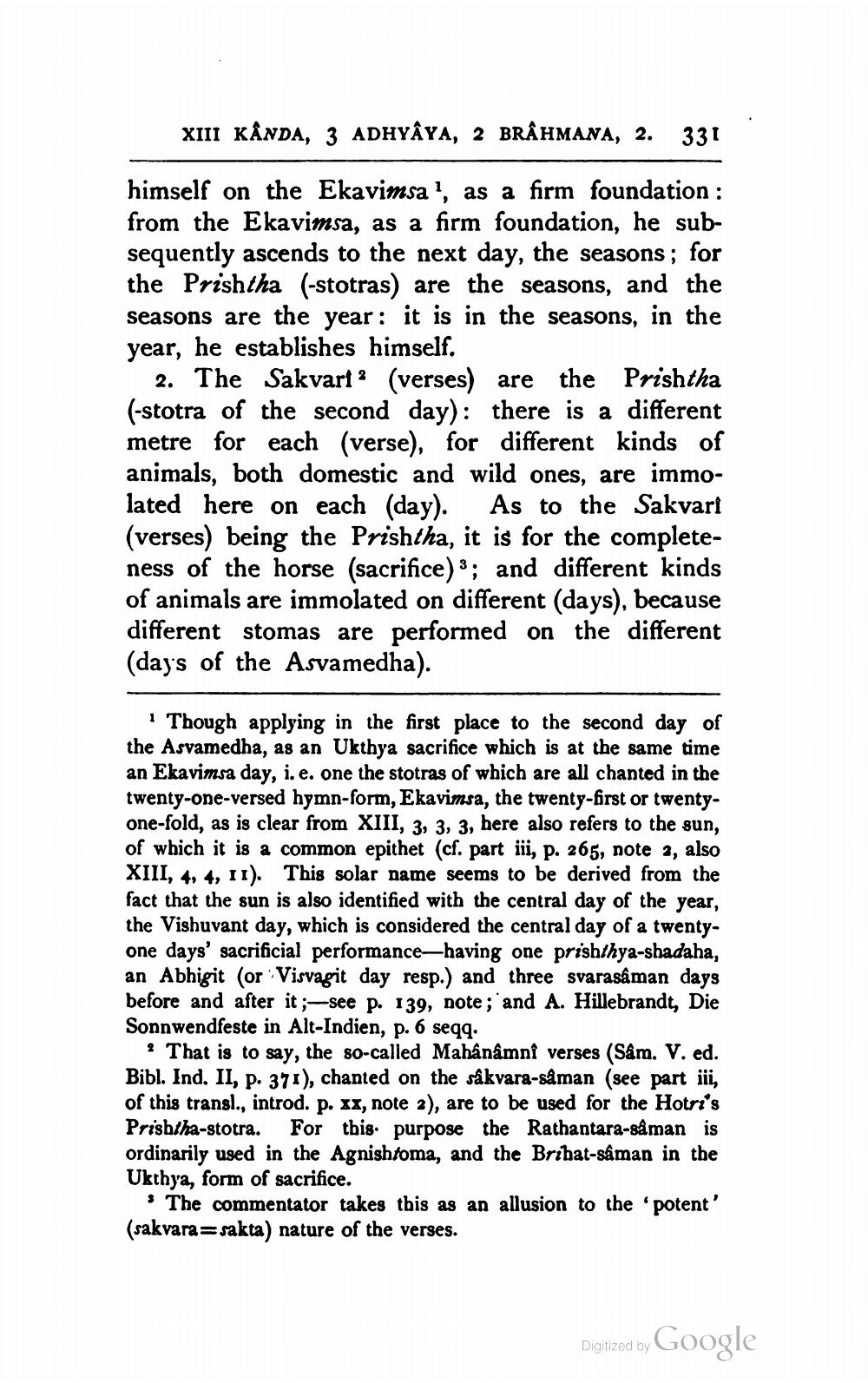________________
XIII KANDA, 3 ADHYAYA, 2 BRAHMANA, 2. 331
himself on the Ekavimsa', as a firm foundation : from the Ekavimsa, as a firm foundation, he subsequently ascends to the next day, the seasons; for the Prishtha (-stotras) are the seasons, and the seasons are the year: it is in the seasons, in the year, he establishes himself.
2. The Sakvart (verses) are the Prishtha (-stotra of the second day): there is a different metre for each (verse), for different kinds of animals, both domestic and wild ones, are immolated here on each (day). As to the Sakvari (verses) being the Prishtha, it is for the completeness of the horse (sacrifice); and different kinds of animals are immolated on different (days), because different stomas are performed on the different (days of the Asvamedha).
1 Though applying in the first place to the second day of the Asvamedha, as an Ukthya sacrifice which is at the same time an Ekavimsa day, i. e. one the stotras of which are all chanted in the twenty-one-versed hymn-form, Ekavimsa, the twenty-first or twentyone-fold, as is clear from XIII, 3, 3, 3, here also refers to the sun, of which it is a common epithet (cf. part iii, p. 265, note 2, also XIII, 4, 4, 11). This solar name seems to be derived from the fact that the sun is also identified with the central day of the year, the Vishuvant day, which is considered the central day of a twentyone days' sacrificial performance-having one prishthya-shadaha, an Abhigit (or Visvagit day resp.) and three svarasâman days before and after it;-see p. 139, note; and A. Hillebrandt, Die Sonnwendfeste in Alt-Indien, p. 6 seqq.
2 That is to say, the so-called Mahânâmnî verses (Sâm. V. ed. Bibl. Ind. II, p. 371), chanted on the sâkvara-sâman (see part iii, of this transl., introd. p. xx, note 2), are to be used for the Hotri's Prish/ha-stotra. For this purpose the Rathantara-sâman is ordinarily used in the Agnish/oma, and the Brihat-sâman in the Ukthya, form of sacrifice.
'The commentator takes this as an allusion to the 'potent' (sakvara sakta) nature of the verses.
Digitized by
Google




